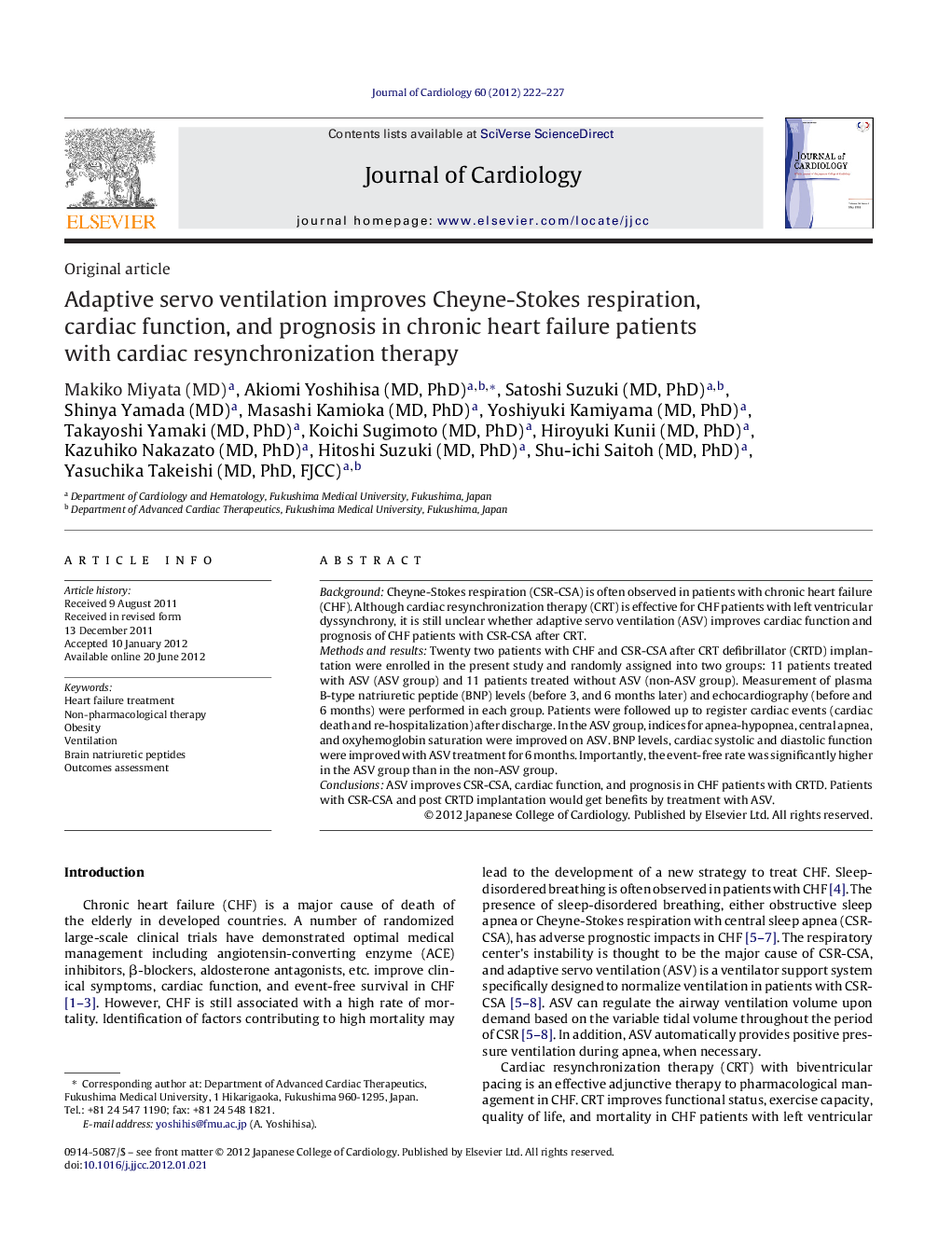| Article ID | Journal | Published Year | Pages | File Type |
|---|---|---|---|---|
| 2963134 | Journal of Cardiology | 2012 | 6 Pages |
SummaryBackgroundCheyne-Stokes respiration (CSR-CSA) is often observed in patients with chronic heart failure (CHF). Although cardiac resynchronization therapy (CRT) is effective for CHF patients with left ventricular dyssynchrony, it is still unclear whether adaptive servo ventilation (ASV) improves cardiac function and prognosis of CHF patients with CSR-CSA after CRT.Methods and resultsTwenty two patients with CHF and CSR-CSA after CRT defibrillator (CRTD) implantation were enrolled in the present study and randomly assigned into two groups: 11 patients treated with ASV (ASV group) and 11 patients treated without ASV (non-ASV group). Measurement of plasma B-type natriuretic peptide (BNP) levels (before 3, and 6 months later) and echocardiography (before and 6 months) were performed in each group. Patients were followed up to register cardiac events (cardiac death and re-hospitalization) after discharge. In the ASV group, indices for apnea-hypopnea, central apnea, and oxyhemoglobin saturation were improved on ASV. BNP levels, cardiac systolic and diastolic function were improved with ASV treatment for 6 months. Importantly, the event-free rate was significantly higher in the ASV group than in the non-ASV group.ConclusionsASV improves CSR-CSA, cardiac function, and prognosis in CHF patients with CRTD. Patients with CSR-CSA and post CRTD implantation would get benefits by treatment with ASV.
